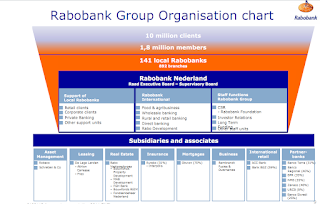Nobelprijzen economie. Welke thema's profiteren het meest?
Een extract - dat verwijderd is - uit de opkomst van de econoom.
De
ontwikkeling sinds jaren ‘70: Nobelprijzen en thema´s
De Nobelprijzen voor economie zijn 52 keer toegekend, aan 86 Laureaten. De Canon waar de meeste Nobelprijzen op toepassingen hebben zijn*:
1. Canon 25 – Marktordening (11x)
improvements to auction theory and inventions of new
auction formats (2020), contributions to
contract theory (2016), Analysis of market power and regulation (Jean Tirole,
2014). The theory of stable allocations and the practice of market design
(2012). Their analysis of markets with search frictions (2010). (Marktordening.
Game theory) Laid the foundations of mechanism design theory (2007). (Canon 25
– marktordening. Game theory) Having enhanced our understanding of conflict and
cooperation through game-theory analysis (2005).Analyses of markets with
asymmetric information (2001). (Canon 25 – marktordening, Game theory). Pioneering
analysis of equilibria in the theory of non-cooperative games (1994). Pioneering
contributions to the theory of markets and efficient utilization of resources
(1988). (Canon 25 – marktwerking, Canon 1 Openbare financieen). Pioneering work
in the theory of money and economic fluctuations and for their penetrating
analysis of the interdependence of economic, social and institutional phenomena
(o.a. Hayek, 1974).
2. Canon 3 –
Internationale en ontwikkelingseconomie (8x)
Experimental approach to alleviating global poverty
(2019). (Canon
3 – Ontwikkelingseconomie, Canon 14. Sociale zekerheid). Analysis of consumption, poverty, and
welfare (2015). Empirical research on cause and effect in the macroeconomy
(2011). Analysis of trade patterns and location of economic activity (2008). Analysis
of monetary and fiscal policy under different exchange rate regimes and his
analysis of optimum currency areas (1999). Having incorporated new analytical
methods into economic theory and for his rigorous reformulation of the theory
of general equilibrium (1983).Seminal studies of industrial structures,
functioning of markets and causes and effects of public regulation (1982).
3. Canon 1 – Openbare financiën (7x)
(Canon 1 – Openbare financieen, 3 –
Ontwikkelingseconomie, 19 – Technologie en arbeidsmarkt) For integrating
climate change into long-run macroeconomic analysis en integrating
technological innovations into long-run macroeconomic analysis (2018). Development
of theory and methods for analyzing selective samples & Development of
theory and methods for analyzing discrete choice (2000). Fundamental
contributions to the economic theory of incentives under asymmetric information
(1996). Developed and applied the hypothesis of rational expectations, and
thereby having transformed macroeconomic analysis and deepened our
understanding of economic policy (1995). Development of the contractual and
constitutional bases for the theory of economic and political decision-making
(1986). Canon 1 – Openbare financieen, Nationale Rekeningen.Fundamental
contributions to the development of systems of national accounts and hence
greatly improved the basis for empirical economic analysis (1984). The
scientific work through which he has developed static and dynamic economic
theory and actively contributed to raising the level of analysis in economic
science (1970).
4. Canon 22 – Econometrie (5x)
Methods of
analyzing economic time series with time-varying volatility / with common
trends (2003). Clarification of the probability theory foundations of econometrics
and his analyses of simultaneous economic structures (1989). The creation of
econometric models and the application to the analysis of economic fluctuations
and economic policies (1980). Activity analysis, later werd dit lineair
programmeren (1975). Theory of optimum allocation of resources en Development
of the input-output method (1973). Having developed and applied dynamic models
for the analysis of economic processes (1969 Frisch en Tinbergen).
5. Canon 20 – Beleggingsleer (5x)
Empirical analysis of asset prices (2013).A new method
to determine the value of derivatives (1997). Their pioneering work in the
theory of financial economics (1990). Pioneering analyses of saving and of
financial markets ( 1985). Analysis of
financial markets and their relations to expenditure decisions, employment,
production and prices (1981).
6. Canon 17 – Gedragseconomie (4x)
Contributions to behavioural economics (2017) Having
integrated insights from psychological research into economic science,
especially concerning human judgment and decision-making under uncertainty (2002).
A laboratory experiments as a tool in empirical economic analysis, especially
in the study of alternative market mechanisms (1992). Pioneering research into the decision-making
process within economic organizations (1978).



Reacties